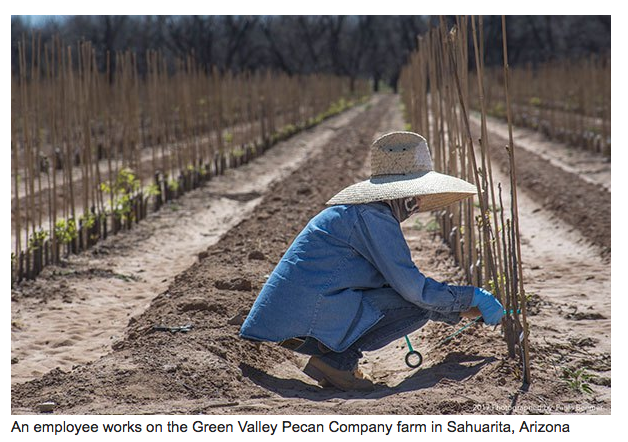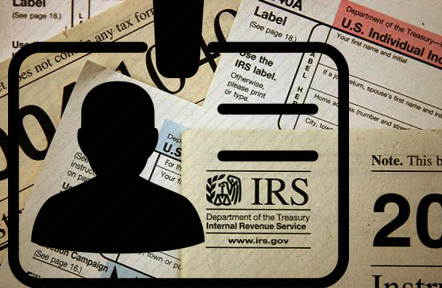Agricultural Labor Shortages Threaten America’s Economy and National Security
 With the United States experiencing rapid economic growth and the lowest unemployment rate it has seen in sixteen years, labor shortages in several American industries pose one of the most significant threats to our nation’s continued economic prosperity.
With the United States experiencing rapid economic growth and the lowest unemployment rate it has seen in sixteen years, labor shortages in several American industries pose one of the most significant threats to our nation’s continued economic prosperity.
When businesses are unable to acquire the number of workers they need to operate at full capacity, they are forced to either cut back on productivity or move operations offshore where they can find a competitive source of labor.
One of the American industries currently experiencing labor shortages at crisis levels is agriculture. Every year, quality produce rots in the fields instead of feeding Americans because farmers cannot find enough workers to harvest it in time. If a practical solution to the labor shortages in the U.S. agricultural industry is not reached very soon, Americans are going to start paying a lot more for food or face the potential risks associated with importing almost everything we eat.
With unemployment at 4.2% and Americans unwilling or unavailable to work these important jobs, it’s time to reform the broken American immigration system to allow the legal and monitored entry of the number of immigrant laborers that will most beneficially meet the dynamic needs of our economy.
It’s a plain and simple threat to national security if American farmers end up going out of business due to a shortage of labor and the U.S. ends up having to import all of its food. We will be in a highly vulnerable position if we become completely dependent on other nations to supply us with the basic necessities of life. Breitbart Texas agrees, proclaiming “Without the farmer, the country’s fate—related to, but not exclusive to, national security—is very much in question.”
With all the regulations and inspections done on food grown in America, it’s typically safer to eat American-grown produce than food imported from a developing country where it could have been grown in all types of conditions. There is also food terrorism to consider, which is a real thing. God forbid it happens, but there are many people in the world that wish to do Americans harm, and poisoning what we eat would be a lot easier if all of our food comes from and travels through areas in which we have little regulatory and security oversight. For example: although it may not have been an intentional act of terrorism, we’ve had children’s toys that came from China with lead paint in them.
In an interview with TexasGOPVote, Nan and Dick Walden, who run the largest pecan farm in the world, shed some light on the labor crisis that they, and many farmers across America, are experiencing.
“We have 270 permanent employees to work on the pecan farm and processing plant year-round, but during the harvest, which is roughly from November until January, we have to hire an additional fifty to sixty workers who we could not keep on all year and stay competitive. We’re a little more fortunate than some of the other agricultural industries because some crops are very perishable like grapes and lettuce, so if you can’t get the right number of workers, you can lose the majority of your crops in a few days.” Nan explained.
“When the construction and other competitive industries are up, it’s tough to get enough workers,” she said.
“Fewer and fewer Americans are working on farms, only 2% now, but we feed not only America, we feed the whole world,” Nan said.
“We are aging; the average age of the farmer has gone way up. I believe it’s something like 65 right now because a lot of young Americans don’t want to work on farms, they would rather work in other fields like IT, which is great. Many of the people coming in, for example in our part of the country from Mexico, they’ve lived on farms and ranches, they know how to deal with livestock, they know how to repair tractors, they know how to weld and do important things that are part of maintaining an agricultural operation,” she explained.
Although a lot of Americans have those skills too, most of them are already employed elsewhere, leading many American farmers to utilize the H-2A visa to bring foreign nationals to harvest their crops when enough American workers aren’t available to do the job.
The H-2A visa actually requires that farmers demonstrate that there are not enough U.S. workers who are able, willing, qualified, and available to do the temporary work. It also requires that farmers show that employing H-2A workers will not adversely affect the wages and working conditions of similarly employed U.S. workers.
Although the H-2A visa is good for our economy in theory, Nan explained that “a lot of the programs in existence are just not practical. For example, in some cases you have to advertise for 75 days that no American wants that job. Well if you have a perishable crop, its gone by then. That’s not going to work. We need practical workable temporary visa programs. We would like to see a guest worker program, we advocate that, and there should be a way to vet these people, give them a biometric ID card and be sure they don’t have a criminal background.”
Another problem associated with labor shortages is the use of undocumented laborers by corrupt employers. Although the Waldens use E-verify to ensure that all of their employees have legal immigration status, there are many corrupt American businesses in industries with labor shortages that employ illegal immigrants by listing them as independent contractors and paying them in cash to undercut wages and avoid paying taxes. There are an estimated 11-15 million undocumented immigrants in America providing much needed labor in industries where workers are still in high demand. Given that we are experiencing labor shortages at crisis levels in certain sectors of our economy, we can’t just deport them all now, because many of our businesses would fail without the labor they provide. That’s why we need a system to ID and tax undocumented immigrants that are already here: to bring them into the system, to make sure they are paying the proper income taxes, and to stop corrupt employers from undercutting wages to outcompete ethical businesses and hardworking Americans.
Every time the proposition is made to fix labor shortages through pathways of permanent and temporary legal immigration or by finding a way to ID and tax undocumented immigrants that are already here, there are outcries demanding that business owners, in this case, farmers, raise wages so Americans will take those jobs. In reality, these jobs actually offer decently competitive wages. For example, “skilled workers harvesting specialty crops like apples and strawberries can earn well over $20 per hour when paid piece-rate wages. Under the current federal agricultural guest worker program, H-2A, farmers pay the Adverse Effect Wage Rate as a baseline which, depending on the state, can be anywhere from 9 percent to 90 percent higher than the state minimum wage.” The fact of the matter is, at 4.2% unemployment there are just not enough American people to meet the demand for workers in our rapidly growing economy.
Requiring farmers to pay more than the going rate for labor in their field is also bad for their competitiveness in relation to foreign firms competing against them for business. This type of socialist ideology of artificially raising wages is against the capitalist principles that have done America so well thus far. If American businesses are unable to find competitively priced labor at home, they will either be forced to move operations offshore, or be subsidized at the cost of American taxpayers in the short term and eventually put out of business by more competitive foreign firms in the long term. Both of these situations result in fewer American jobs and less money circulating in the American economy.
Thanks to the capitalist nature of our economy that has historically led to the success of all kinds of American businesses on shore, money has trickled down and circulated throughout the economy in the form of jobs, lower consumer prices, high quality American goods and services, and a valuable international currency in the U.S. dollar. That's why we need immigration reform: to let the right number of legal immigrants in to meet the dynamic needs of our growing economy and to find a way to ID and tax the hardworking illegals that are already here contributing to our economy. Furthermore, quality immigration reform will free up distracted immigration enforcement resources, allowing them to focus on securing the border and deporting any violent criminal aliens looking to do us harm.








